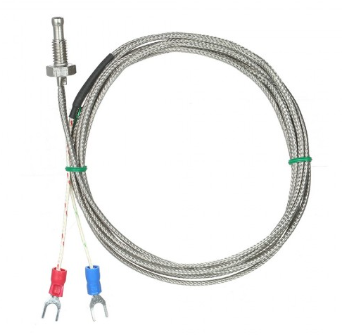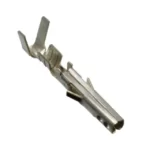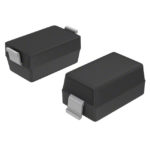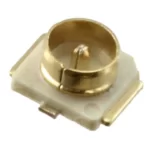Temperature Thermocouple Sensor: What You Need

A thermocouple is a temperature sensor that is used in a wide variety of applications, including HVAC/R, process controls, and automotive. These sensors are designed to measure the temperature of an object or environment and provide accurate readings. There are many different types of thermocouples, each with its own unique set of features and benefits.
When choosing a thermocouple sensor for your application, it is important to consider the type of sensor, the accuracy required the temperature range, the environment, and the price. In this blog post, we will explore the different types of thermocouple sensors and what you need to know in order to choose the right one for your application.
What is a Temperature Thermocouple Senso?
A temperature thermocouple sensor is a tool that measures the temperature of an object or environment. It consists of two wires of different metals (usually copper and iron) that are joined at one end. The other end of the sensor is connected to a meter that measures the voltage between the two wires. The voltage varies with the temperature, so by measuring the voltage, the sensor can determine the temperature.
What are the different types of Temperature Thermocouple Senso?
Different types of temperature thermocouple sensors include those with an {R} type, {S} type, {B} type, or {J} type thermocouple. Each one is designed to measure different ranges of temperatures. The {R} type sensor is the most common and can measure temperatures from -50 to 1700 degrees Celsius. The {S} type sensor can measure slightly higher temperatures than the {R} type, from -50 to 1800 degrees Celsius. The {B} type sensor can measure even higher temperatures than the {S} type, from -40 to 1850 degrees Celsius. Finally, the {J} type sensor can measure the highest temperatures of all, from -40 to 1200 degrees Celsius.
How does a Temperature Thermocouple Senso work?
A temperature thermocouple sensor measures the temperature of its environment and converts it into an electrical signal. This signal can then be read by a temperature controller or SWPA6045S6R8MT another electronic device.
Thermocouple sensors are made up of two different metals that are joined together at one end. The junction between these two metals creates a voltage that is proportional to the difference in temperature between the two metals.
The most common type of thermocouple sensor is the J-type sensor. This sensor consists of a copper-constantan (Cu-Const) thermocouple. The copper wire is responsible for conducting the electricity, while the constantan wire provides resistance to changes in temperature.
J-type sensors are often used in applications where accuracy is not as critical, such as in HVAC systems. However, they can also be used in more precision applications such as in laboratory equipment or food processing machinery.
What are the benefits of using a Temperature Thermocouple Senso?
Temperature thermocouple sensors have a number of benefits that make them ideal for use in a variety of applications. First, thermocouples are highly sensitive and can accurately measure very small changes in temperature. This makes them ideal for use in applications where precise temperature measurements are required, such as in scientific research or industrial process control.
Another benefit of thermocouples is that they are relatively inexpensive to produce, making them a cost-effective option for many applications. Thermocouples are also durable and rugged, meaning they can withstand harsh environments and repeated use. Finally, thermocouples are widely available and easy to find, making them a convenient option for many users.
How to choose the right thermocouple sensor for your needs
There are many different types of thermocouple sensors on the market, and it can be difficult to know which one is right for your needs. Here are a few things to consider when choosing a thermocouple sensor:
-The type of material you need to measure. Thermocouple sensors are made from different materials, each of which is better suited for measuring certain types of materials.
-The temperature range you need to measure. Different thermocouple sensors have different temperature ranges, so make sure to choose one that will work for your needs.
-The accuracy you need. Not all thermocouple sensors are created equal in terms of accuracy. If you need a highly accurate measurement, make sure to choose a sensor that is rated for high accuracy.
-The price. Thermocouple sensors can vary widely in price, so be sure to compare options before making a decision.
Thermocouple sensor installation and maintenance tips
Thermocouple sensors are one of the most popular types of temperature sensors and for good reason. They’re rugged, reliable, and accurate. But like any other type of sensor, they need to be installed and maintained properly to function their best. Here are some tips for doing just that:
1. Mount the thermocouple sensor in a location where it can accurately measure the temperature of the process or object being monitored. This typically means mounting it in the path of hot gases or liquids, or in close proximity to hot surfaces.
2. Use thermal insulation to protect the sensor from high temperatures if necessary. This will help prevent damage to the sensor and ensure accurate readings.
3. Make sure the thermocouple wire is routed away from sources of electrical interference, such as motors or power cables. This can cause false readings or even damage the sensor.
4. Regularly check the thermocouple connection for tightness and cleanliness. Loose connections can cause inaccurate readings, while dirt or debris can prevent proper operation altogether.
5. Calibrate the sensor according to the manufacturer’s instructions on a regular basis (typically once per year). This ensures accuracy over time and helps compensate for any changes in ambient conditions or process temperatures.
Conclusion
If you are looking for a reliable temperature sensor, then a thermocouple sensor is a great option. Thermocouple sensors are used in many different industries and have been proven to be accurate and durable. If you need help choosing the right thermocouple sensor for your application, our team of experts can assist you. Contact us today to learn more about how we can help you find the perfect temperature sensor for your needs.


